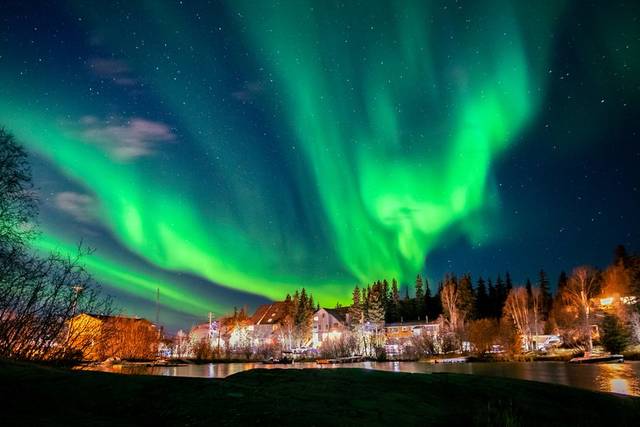The night sky over Whitehorse shimmered in cascading ribbons of green and violet last week, drawing gasps from bundled-up visitors clutching steaming mugs of cocoa. For many, it was the culmination of a bucket-list trip to Canada’s north — and for local tour operators, it’s part of a tourism boom unlike anything they’ve seen before.
In both Yukon and the Northwest Territories, bookings for Northern Lights tours are breaking records. Operators in Yellowknife report being fully booked months in advance, with some guests traveling from as far as Australia and South America. “The demand is incredible,” said Laura Jenkins, owner of Aurora Sky Adventures. “People are planning entire vacations around the lights, and they’re staying longer than they used to.”
Experts say the surge is partly due to a peak in solar activity, which enhances aurora displays, and partly to savvy marketing campaigns that showcase the north as an accessible yet exotic destination. The combination has extended the traditional viewing season from late August to early April, giving communities more opportunities to benefit economically.
Yellowknife, often referred to as the “Aurora Capital of North America,” has invested in infrastructure to handle the influx. New lodges and heated observation domes have sprung up, while shuttle services ferry guests to prime viewing spots away from city lights. In Whitehorse, tourism boards have partnered with Indigenous guides to offer cultural experiences alongside the light shows, including storytelling, drumming, and traditional meals.
While the economic boost is welcome, the rapid growth also presents challenges. Environmentalists warn that increased traffic to sensitive wilderness areas must be managed carefully to prevent long-term damage. Local governments are working with conservation groups to create guidelines for sustainable tourism, such as limiting group sizes and encouraging operators to minimize their environmental footprint.
For visitors, the Northern Lights offer more than just a spectacle — they often describe it as a transformative experience. “I’ve traveled all over the world, but nothing compares to standing under that sky,” said Maria Sanchez, a tourist from Mexico City. “It makes you feel small in the best possible way.”
As the solar cycle promises strong aurora activity for at least the next two years, communities across the far north are preparing for continued growth. For now, as shimmering waves of color dance across the Arctic sky, the region’s challenge will be balancing opportunity with preservation — ensuring that the magic of the Northern Lights remains for generations to come.
